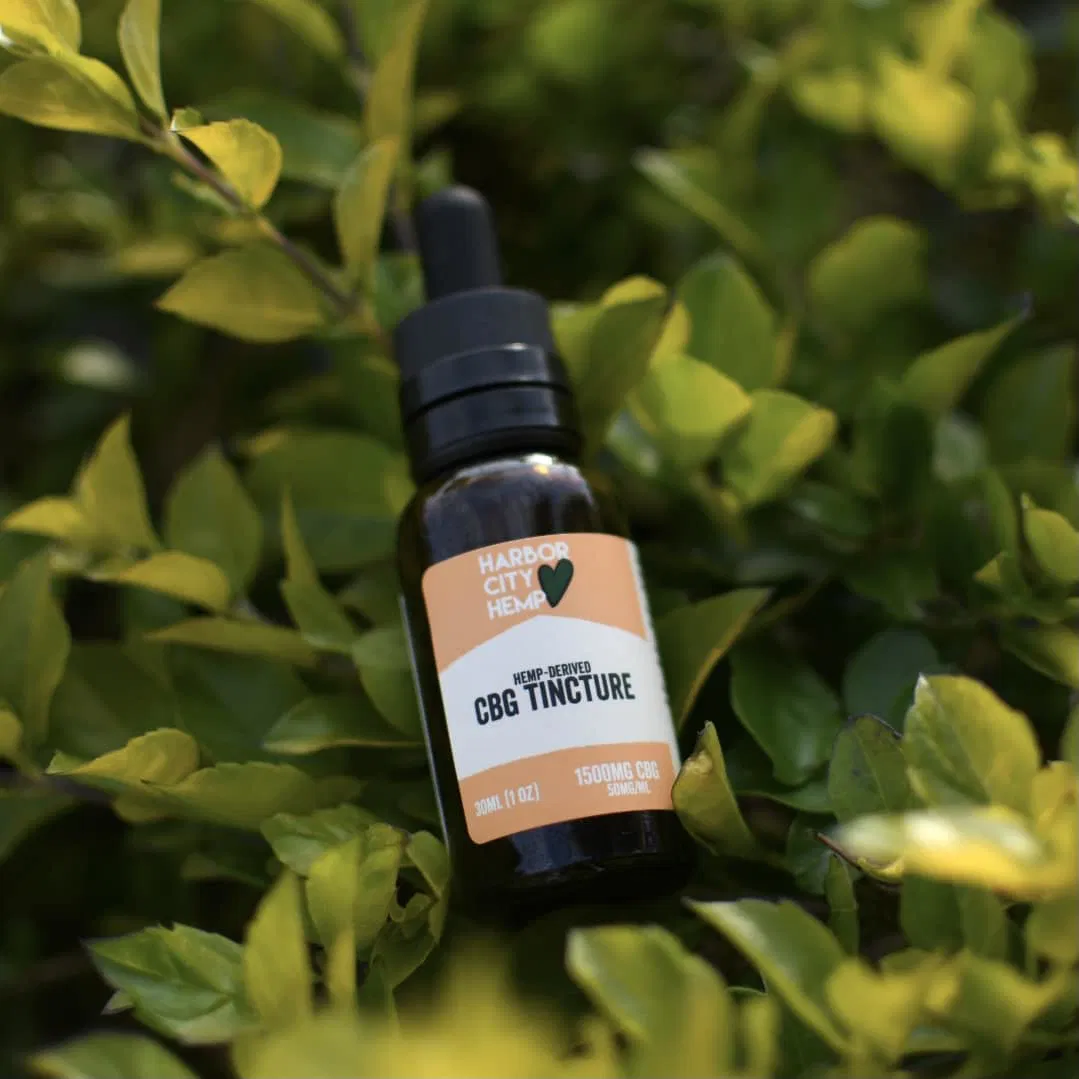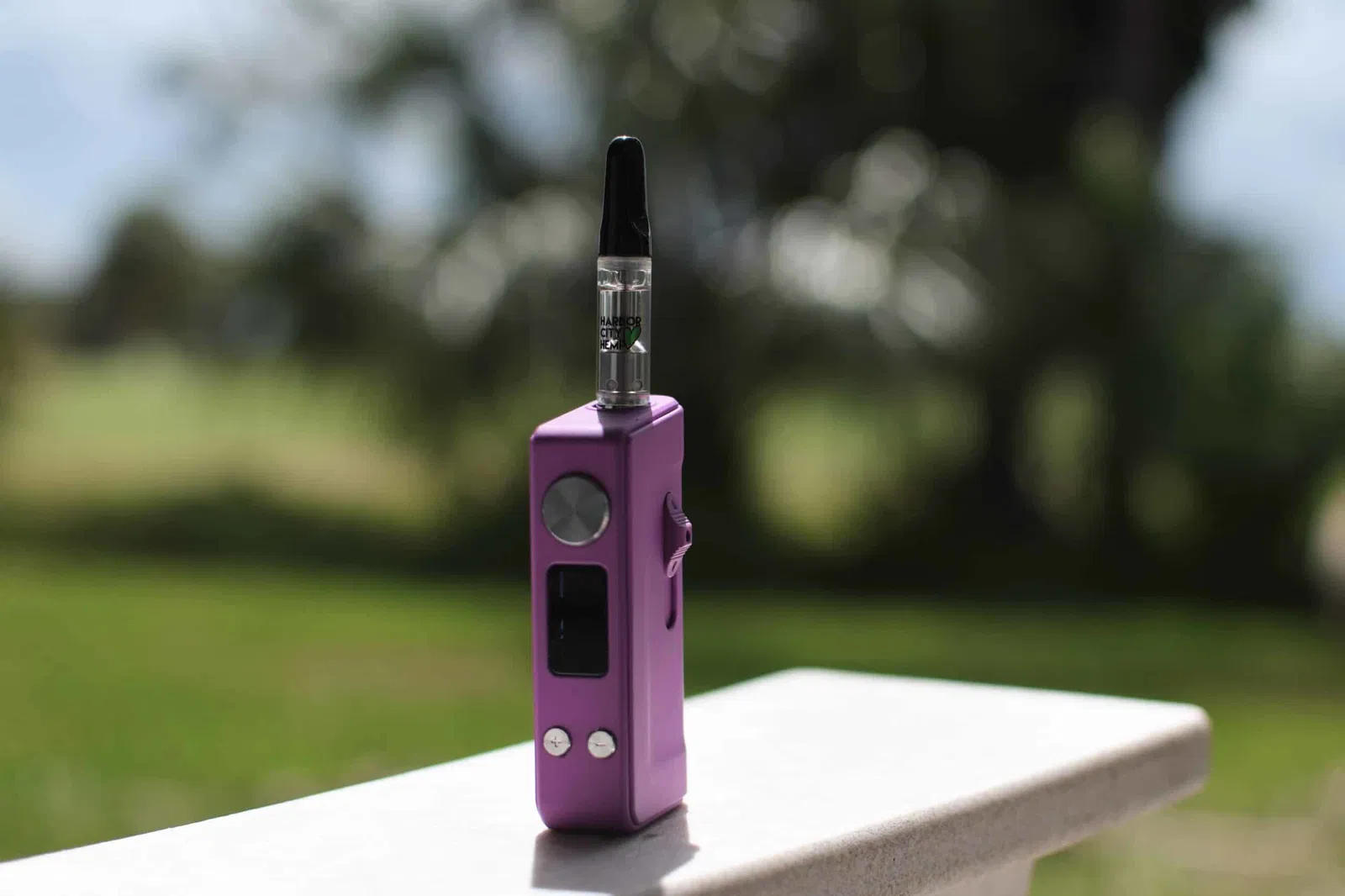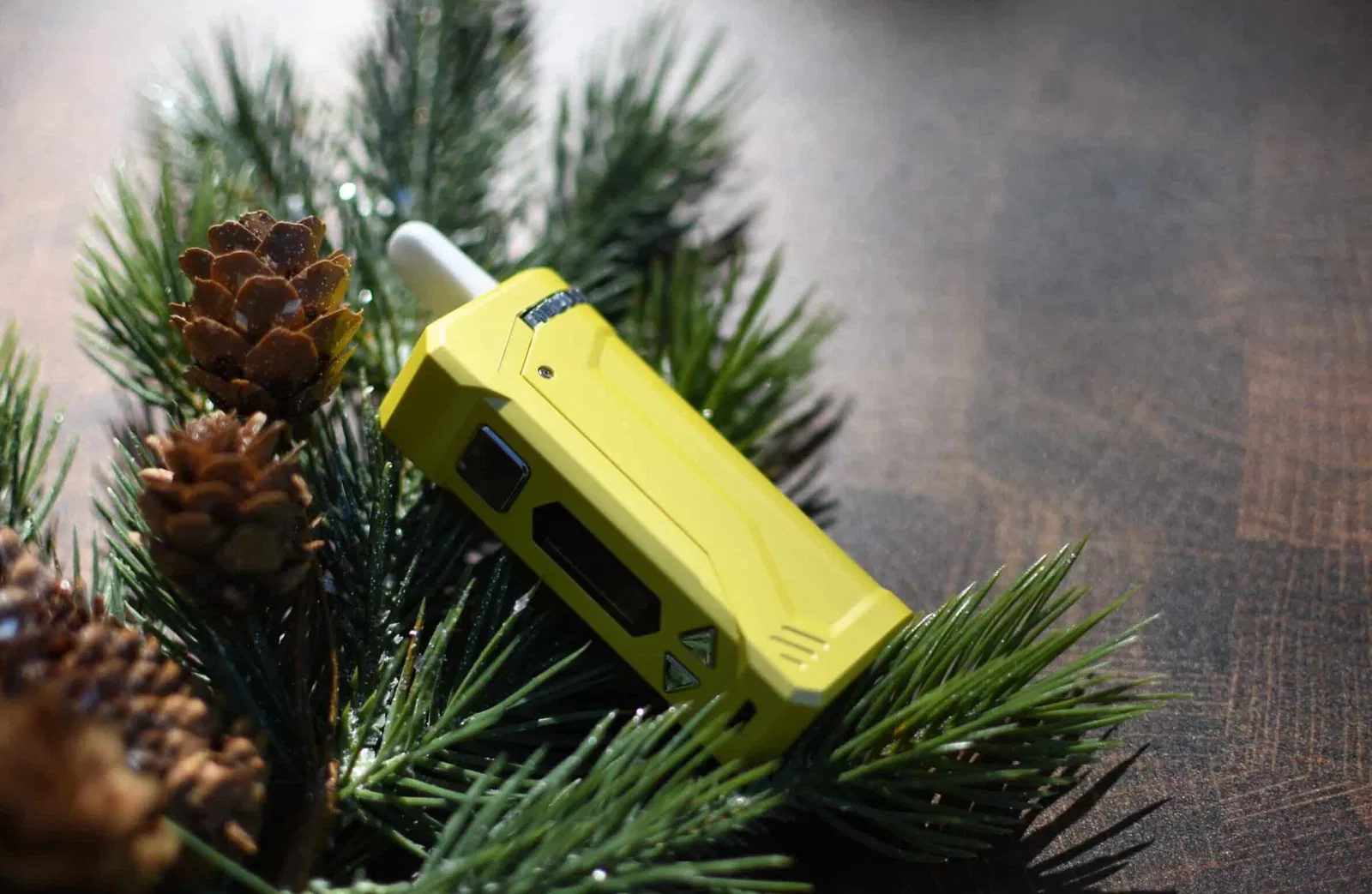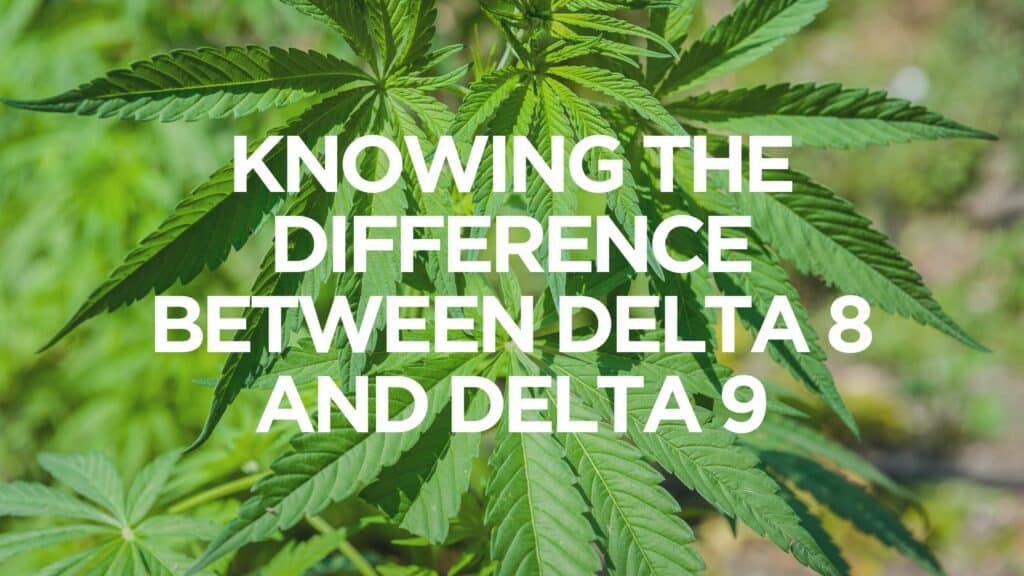Visit any cannabis dispensary, and you will see a mind-boggling range of Delta 8 THC and Delta 9 THC products. As similar as these two can be, there are significant differences that will affect your choice between the two. So it’s essential to know the difference between Delta 8 THC and 9 THC.
Both cannabinoids come from the Cannabis Sativa plant, in which there are more than 100 active constituents, although there is way more Delta 9 in the plant than Delta 8 THC. Both can make users “high” since they have intoxicating psychoactive effects.
Aside from the differences in chemical or molecular structure, Delta 8 THC and Delta 9 THC are treated differently under federal law. To have a safe and legal experience, you must understand the difference between Delta 8 and Delta 9 as a consumer.
What Is Delta 8 THC?
Delta-8-tetrahydrocannabinol or Delta 8 THC is extracted from hemp-derived cannabidiol (CBD) and is usually manufactured in concentrated amounts since there are only small amounts of it in Cannabis Sativa. CBD doesn’t have intoxicating effects, but Delta 8 THC has, although it’s way less potent than Delta 9.
You can now find Delta 8 THC in many products, from gummies to vaping cartridges. Delta 8 THC has not been evaluated or approved by the FDA as a treatment or cure for medical conditions, but manufacturers are already positioning them as such.
Since it doesn’t have the blessings of the FDA yet, it’s only natural to wonder about its safety. Just like other cannabis-based products, Delta 8, like Delta 9, comes with its own set of benefits and risks.
In the case of Delta 8 THC, therapeutic benefits include pain relief, reduced inflammation, improved sleep and appetite, and calming of the nervous or immune system.
The risks come with consuming too much of the products. The adverse effects are usually short-term and dependent on factors such as dose consumed, frequency of consumption, method of administration, and the user’s health status.
These short-term side effects include dry mouth and eyes, lethargy, disorientation, anxiety, impaired coordination, and increased heart rate. Naturally, those who have preexisting conditions are more at risk than those who don’t.
Those with cardiovascular disease can risk having heart damage or abnormal heart rhythms if they overconsume Delta 8 THC.
Don’t put yourself at risk and buy only high-quality Harbor City Hemp Delta 8 Products.
What Is Delta 9 THC?
Delta 9 THC is found naturally in the cannabis plant and is an intoxicating compound. Cannabis dispensaries have many forms of Delta 9 THC products – gummies, candies, cookies, beverages, vape cartridges, tinctures, and even topical lotions. Of course, there are pre-rolled joints too.
Some manufacturers market Delta 9 THC products for treating or mitigating certain medical symptoms and diseases, but it hasn’t been approved by the FDA yet.
So far, the FDA has approved only synthetic THC formulations: dronabinol and nabilone. They are used to alleviate the side effects of chemotherapy, such as nausea and vomiting. Nabilone is also used to improve the appetite of AIDS patients.
Consuming Delta 9 THC has several benefits, including relaxation, increased appetite, feelings of happiness or elation, decreased anxiety, and heightened imagination.
As for the risks, the adverse side effects of consuming too much Delta 9 include dry mouth, confusion, heightened anxiety, paranoia, uneasiness, and low blood pressure.
Delta 9 is safe to use as long as you buy exclusively from trusted brands such as Harbor City Hemp Delta 9 products.
Comparing Delta 8 and Delta 9 THC
We can distinguish between Delta 8 and Delta 9 THC in terms of effects, products, legality, and availability.
Effects
There is the same set of elements in both Delta 8 and Delta 9 THC, which are carbon, hydrogen, and oxygen. The difference is how these elements are arranged.
Delta 8 and Delta 9 THC activate the body’s CB1 and CB2 cannabinoid receptors, including those in the central nervous system. This means both can produce the positive and negative effects cited above.
The activation of CB1 receptors leads to pain relief, better sleep, more relaxation, better appetite, a calmer nervous system, and prevention of sensory overstimulation.
Meanwhile, the activation of CB2 results in a calmer immune system and less inflammation. Both are necessary for improving a lot of chronic health conditions.
Overconsumption of Delta 8 or Delta 9 THC leads to overstimulation of CB1 receptors.
This can lead to dry mouth and eyes, disorientation, lethargy, anxiety, loss of coordination, memory impairment, and increased heart rate.
Potency is a factor when it comes to effects. Delta 8 THC, at least the properly labeled products, are around a quarter or one-third less potent than the same amount of Delta 9 THC. This is important since it can influence one’s decision to take Delta 8 or Delta 9.
Products
Both are pretty much the same when it comes to products. Delta 8 THC and Delta 9 THC can be smoked as a flower, vaped, or taken as edibles. They come in the form of capsules, tinctures, and topicals too.
Legality
Since marijuana is not legal federally in the U.S., the legalization is left up to the individual states. Because of this, the legality of Delta 9 THC has been affected directly. Products should not have more than 0.3% Delta 9 THC – anything above that is considered illegal at a federal level. When it comes to state-level rules, it will depend on local marijuana laws.
Delta 8 is technically legal, federally. The 2018 Farm Bill, which made hemp production legal, comes with ambiguities. Nothing within the bill states that deriving Delta 8 from hemp and making products with it is not allowed.
However, the psychoactive effects of Delta 8 have prompted some states to ban it. Currently, 15 states do not allow the sale and use of Delta 8 products. So while Delta 8 is more widespread now, no one is sure how long this will last, given the safety concerns.
There are already extensive studies done on Delta 9 THC, while there’s little on Delta 8. Regulation is another significant difference between the two. While Delta 9 THC is highly regulated in states where there are legalized measures regarding testing, extracting, and labeling, it’s not quite the same as Delta 8.
Delta 8 THC products, particularly the manufacturers, are not following regulations. This is why you can’t be too sure if the products are free from contaminants or if you can rely on what it says on the label.
Availability
Because of the status of Delta 9 THC as a controlled substance in some areas, shipping its products across state lines is prohibited. It’s different with Delta 8 – since it’s federally legal, it can be shipped across state lines.
Because of this, there are online retailers for Delta 8 products. For obvious reasons, reputable companies will not ship to states where Delta 8 is prohibited.
You may want to be more careful when buying from physical shops. Since Delta 8 is not regulated by the FDA, you may encounter low-quality products that may have unwanted impurities, which can have an unpleasant effect on your body.
With this in mind, refrain from buying Delta 8 products from gas stations or sketchy-looking shops.
Always buy your stuff from reputable brands. They should have websites that show information about their products, particularly the production process and lab results. If a seller doesn’t have these, find another seller who does.
Extraction
The extraction process of Delta 9 THC is generally cheap and simple, given that it’s a major cannabinoid abundant in cannabis plants. On the other hand, it requires a great deal of effort to extract Delta 8 THC. As a minor cannabinoid, it’s not as abundant, and there’s just little Delta 8 to be extracted from cannabis.
This is why Delta 8 THC is synthesized from CBD instead, with the help of solvents. It also explains why most Delta 8 came from hemp instead of marijuana plants. The conversion is more expensive here, and more strict since the concentrations produced must be under 0.3% Delta 9 THC to stay federally legal.
Almost all products of Delta 8 THC are synthesized, extracted, and purified from cannabis-sourced CBD. On the other hand, Delta 9 THC can be smoked or vaporized without the need for extraction, although extraction is necessary for edibles, topicals, and other preparations.
Ultimately, it all boils down to your personal needs and preferences when it comes to choosing between Delta 8 THC and Delta 9 THC. The two are similar in many ways, but their differences matter a lot when it comes to your choice. You must consider several factors, particularly how your body reacts to cannabis.
Your genetics, metabolism, the potency of the product, amount of product consumed, and method of consumption will have a say on how Delta 8 THC or Delta 9 THC will affect your body.
Still, a fair lot within the cannabis community consider Delta 9 the “classic choice,” and they will accept nothing less than the intense psychoactive effects Delta 9 gives them.
But it’s easy to see why Delta 8 THC is becoming more popular, given its milder effects and legal availability.
If you’re a first-timer, Delta 8 THC is a safer option, given the lower psychotropic potency. You don’t want to take anything you couldn’t handle on your first try. Now, if you’re a more experienced user, you are better equipped to handle the intense highs that Delta 9 THC brings.
Whatever you choose, always remember to buy your Delta products only from reputable sellers in the cannabis market. This is the only way to ensure that cannabis consumers can enjoy the products safely and legally.
FAQ
Which is better, Delta 8 or Delta 9?
Given the milder psychoactive effects that Delta 8 THC has compared to Delta 9, a lot consider Delta 8 THC the “better” option. Availability is another factor here – since Delta 8 is federally legal, it’s easy to purchase and ship from one area to another. However, those looking for a more intense high may fare better with Delta 9.
Does Delta 9 get you higher than Delta 8?
Delta 9 is more potent than Delta 8 THC – some believe it’s twice as strong as its milder cousin. Delta 9 accounts for most of the THC naturally found in the cannabis plant, making it easier to extract.
Is Delta 8 or 9 safer?
When used responsibly, Delta 8 THC seems ” safer ” than Delta 9. It’s less potent and has lower risks of giving you panic attacks, anxiety, and paranoia. Be wary of contaminated products, though. Delta 8 products that are not as “pure” as it’s supposed to be may contain irritants or potentially harmful chemicals that may affect your body in terms of effects.
Remember, though, that if used responsibly, Delta 8 and Delta 9 can be safe to use.
Which Delta is the strongest?
Delta 9 is stronger since it’s more potent than Delta 8. It has stronger psychoactive effects, which makes it more likely to produce unpleasant side effects such as anxiety and paranoia.
Get the Best Delta 8 THC, Delta 9 THC, and Other Cannabis Products In Melbourne, Florida, at Harbor City Hemp
Harbor City Hemp was founded in Melbourne, FL, by two engineers passionate about hemp. The store’s mission is to provide high-quality and affordable hemp products to the local community and customers across the United States.
Harbor City Hemp has recently updated the conditions and terms of our discount program to better streamline the experience for you as the customer. Please get in touch with the store for more details on how to enroll, the updated discounting, and what documentation will be required to be accepted into the program.
Customer support is available Monday to Friday between 9 AM and 5 PM EST and typically replies within 48 hours. You can also visit our physical stores. Check out the nearest Harbor City Hemp shop near you.




